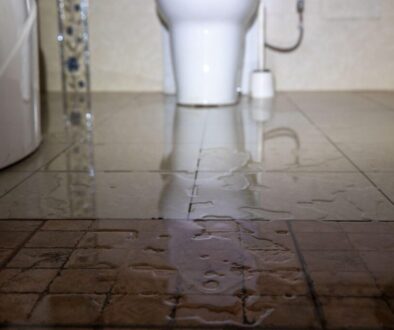Stopping the Bleeding
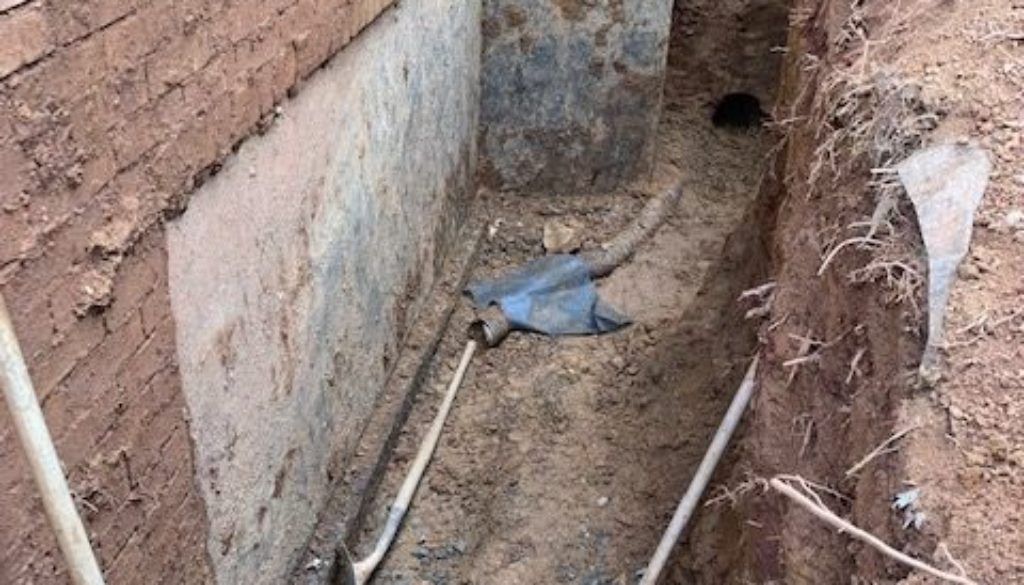
Atlanta, GA
November 13, 2021
The phone buzzed.
“Mr. Breen?”, came the voice, as if from a mine shaft, barely audible over the ambient noise around it.
“Yes?”
“Can you come outside? The trench just collapsed.”
I hung up, and ran outside.
The last couple years, it’s frequently felt like the walls are closing in. Last week, just outside our front window, one of them did.
For a few months, several others have been giving way. For many years, like the annual flooding of the Nile, we’ve endured a recurring inundation of our basement.
Over the years…twice under an exterior wall, once from an incontinent water heater, and now thru the baseboards of the interior rooms…an inch or more of groundwater repeatedly saturated the lowest level of our house.
Two months ago…for the fourth time in four years…the moist carpet came up, wet furniture was moved, industrial fans cleared damp air from dank rooms, and domestic tide pools were vacuumed, mopped, or sopped from exposed concrete floor.
After previous floods, we tried to salve or patch our wounded wall, without knowing where it had been cut. Whatever tourniquet, gauze, or sutures we applied, the blood kept coming. After this latest laceration, we were thru with precision medicine. It was time for major surgery.
The expense and disarray such an effort entailed had kept us from taking such drastic measures. But sometimes one has to cut in order to cure. To pull a weed, we must extract the roots. Otherwise, like shaved whiskers, they strengthen, and propagate.
There are only so many times you can seal a crack or plug a hole. Eventually, you must replace the pipe or reinforce the wall. So after we drained the swamp inside the house, we decided once and for all to keep it out.
Two days later, the digging began. New catch basins were installed, larger drain pipes laid, and flat terrain re-graded to funnel flow from the house and toward these protective receptacles.
But when the top of the exterior basement wall was exposed, we noticed it had never been waterproofed (or that four decades of pressure and erosion had worn away whatever flimsy coating the builders had applied). We also saw that the water main and sewer line each pierced the wall thru unsealed openings, allowing unimpeded flow of the inbound tide. I suddenly realized, like Roy Scheider in Jaws, that we’d need a bigger boat.
We had to dig deeper. And wider. To render the wall impervious to troubled waters, we had to excavate to the foundation, coat and seal the entire face, and affirm adequacy of the original French drain. That required going to a depth of at least ten feet, and a width of at least five, along almost sixty feet of frontage.
Within a day, a crew of three, using only picks and shovels, made our front yard look like the scene where Indians Jones unearths the Ark. We found no snakes, but also no treasure.
When we descended the depths, we saw that the builders had installed no French drain. Water that flowed underground toward the house had to just sit there indefinitely, like a patient in the ER, till it could work its way methodically under the baseboards, and onto our nerves.
In addition to coating the wall, we now knew we’d need to lay six-inch PVC along the foundation, and under the portico. Then, like suspenders with a belt, we’d add extra insurance. To capture any water the French drain didn’t, we would installed a sump pump to push renegade water from the foundation to the previously installed drain pipes.
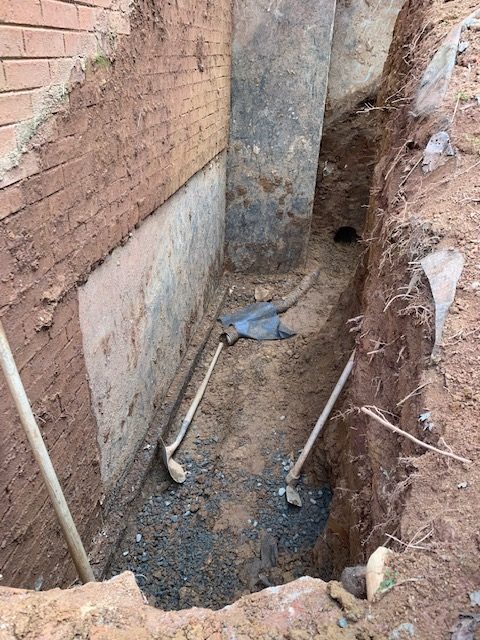
We had our plan, and knew what needed to be done. I returned upstairs, and resumed my work. That’s when my phone buzzed, and I ran outside.
José, our contractor, had been in the trench installing the French drain: “I was compacting the ground to lay the pipe, and felt dirt falling on the back of my neck. I thought maybe some of the material the other guys were shoveling was hitting me, so I kept working. Then, larger pieces fell, and I realized what was happening. Before I could get up the ladder, it became an avalanche.”
José was covered in red Georgia clay, but had managed to dig himself out. “Don’t worry”, he reassured me. “I’m fine. And I’m insured.”
The trench was re-dug (this time to greater width) the drainage work resumed, and a couple days ago was completed. In the basement, drywall, carpet pads, and baseboards were replaced. This morning, the carpet was reinstalled, hopefully immune to future floods.
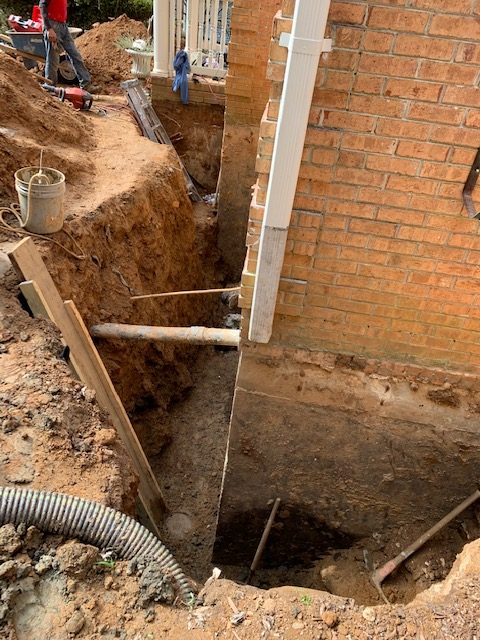
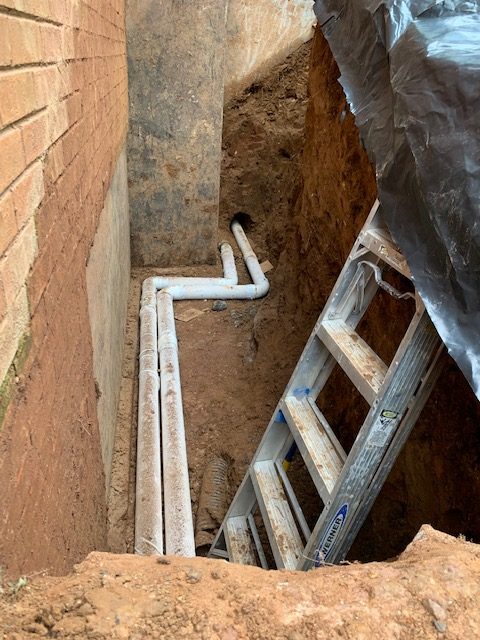
This was an arduous effort, and a disruptive one. But it allowed me to flex engineering muscles that had atrophied during my two decades in the weeds of price planning and the clouds of economic theory. It felt good to exercise them again. I decided to stretch them further.
We had recessed lights acting up in the kitchen and office, so while José was here I asked if I could discuss them with his electrician. When he arrived, I described the situation with assuredness, how the wiring from the canisters was probably amiss, or that one of the connections was flawed. He nodded politely, and offered to take a look.
I thanked him, and went downstairs to flip the breaker. When I came back to tell him he could start working, he told me he was done. I was amazed.
“Wow. That was fast. What did you do?”
“I changed the bulb.”
JD

